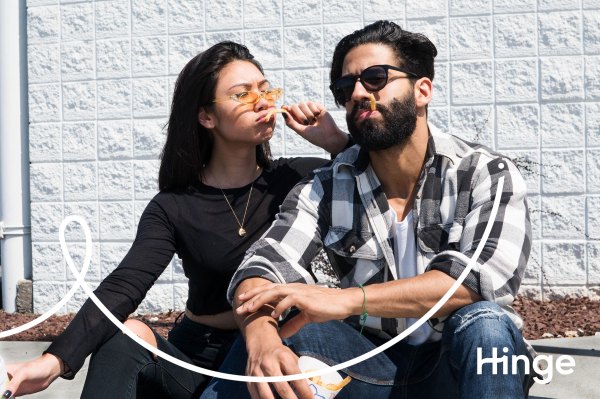Dating app Hinge is today launching a new feature aimed at improving its recommendations, based on whether or not matches had successful real-world dates. The feature may also help to address one of the major problems with today’s dating apps: that no one knows how well they actually work. After all, it’s one thing to get matches and have conversations, but it’s quite another to turn those into dates, much less a long-term relationship.
With a new feature called “We Met,” Hinge will ask users a few days after they shared their phone numbers if they went on a date, and, if so, if they’d want to see that person again. This data will be used as a signal to inform Hinge’s algorithms and improve matches, if the user later returns to the app.
During beta trials, Hinge says that 90% of members said their first dates were great, and 72% said they wanted to go on a second.
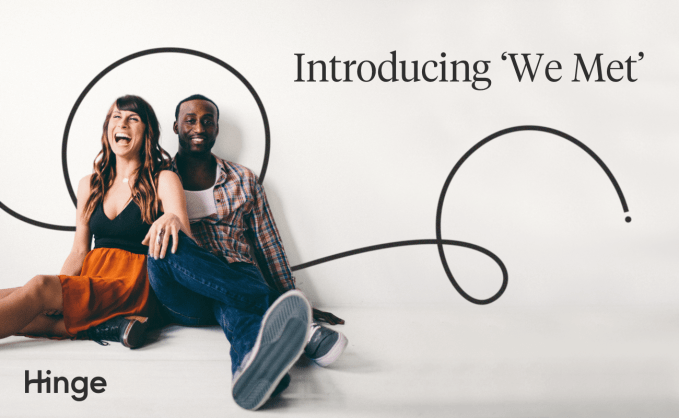
“Ultimately, if you went on a date with someone and you thought they were great, that’s the strongest signal that we’ve gotten very close to your type of person. So if there are more people like that person, we can show them to you,” says Hinge CEO Justin McLeod.
By “like that person” it’s not a matter of physical appearance or some sort of profile categorization, to be clear.
“You can’t really aggregate people into their component pieces and try to crack what’s someone’s ideal person,” McLeod explains.
Instead, Hinge uses collaborative filtering – people who like X also like Y – to help inform its matches on that front.
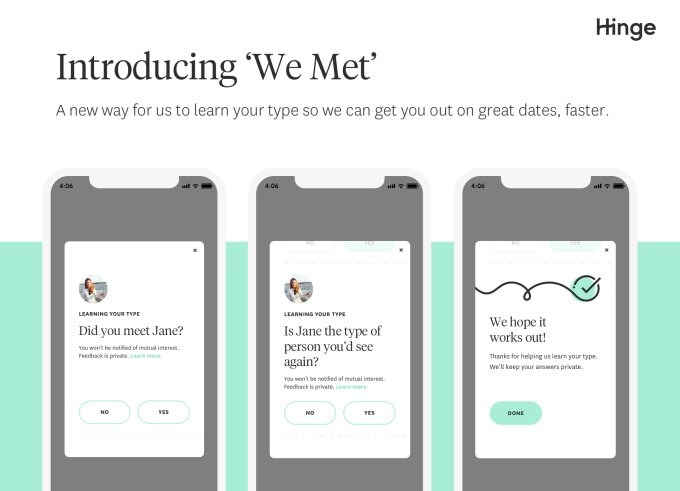
With the launch of We Met, Hinge will now know when dates succeed or fail, and eventually, perhaps, why. It also plans to combine the We Met data with other signals – such as, whether users become inactive in the app or delete their accounts, as well as email survey data – to figure out which dates may have turned into relationships.
This is something of a first for the dating app industry, which is today incentivized to keep users “playing” their matching games, and spending money on in-app subscriptions – not leave them. It’s not in dating apps’ financial interest, at least, to create relationships (i.e., heavy user churn).
This influences the dating apps’ design – they don’t tend to include features designed to connect people in real life.
For example, they don’t make suggestions of events, concerts, and other things to do; they don’t offer maps of nearby restaurants, bars, coffee shops, or other public spaces for first dates; they don’t offer built-in calling (or gamify unlocking a calling feature by continuing to chat in app); they don’t use in-app prompts to suggest users exchange numbers and leave the app. Instead, apps tend to push users to chat more – with things like buttons for adding photos and GIFs, or even tabs for browsing Facebook-style News Feeds.
The problem of wasting time chatting in dating apps has now become so prevalent that many users’ profiles today explicitly state that they’re “not looking for pen pals.”
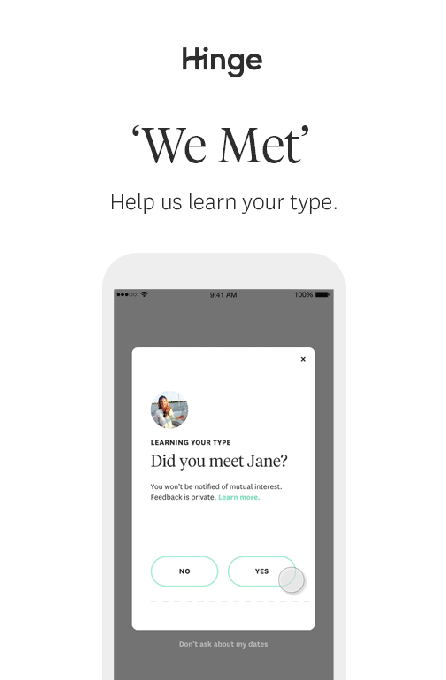
Of course dating apps – just like any other way of meeting new people – will have their share of success stories. Everyone knows someone who met online.
But claims that, for example, Tinder is somehow responsible for a whole generation of “Tinder babies” are hugely suspect, because the company doesn’t have any way of tracking if matches are actually dating, and certainly not if they end up getting married and having kids. It even said so in a recent documentary.
All Tinder has – or any of these companies, really – are anecdotes and emails from happy couples. (And this, of course, should be expected, with user bases in the tens of millions, like Tinder.)
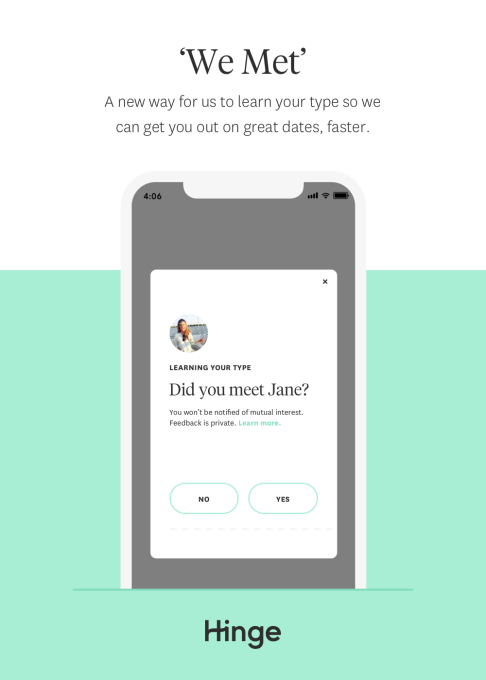
We Met, meanwhile, is actually focused on quantifying real world dating successes in Hinge, not in-app engagement. Longer term, it could help to establish Hinge as place that’s for people who want relationships, not just serial dates or hookups.
The feature is also another example of how Hinge is leveraging A.I. combined with user insights to improve matches. Recently, it rolled out a machine learning-powered feature, Most Compatible, to help provide users with daily recommendations based on their in-app activity.
Hinge says We Met will launch today, October 16, on iOS first. Android will soon follow.
